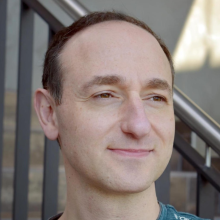
Projects from Prof. Dr. Sevag Gharibian
Bridging finite dimensional and infinite dimensional quantum systems — simulations and computational power
Duration: 10/2025 - 10/2028
Photonic Quantum Systems Network (PhoQSNET) - Quantum communication infrastructure
Data security is critical to modern society. From personal data and identity fraud to cyber-attacks threatening the integrity of sovereign nations, the need for secure communication and data processing has never been greater. While quantum networks address some of these issues, in that they can be provably secure for many cryptographic ...
Duration: 01/2022 - 12/2027
Quantum Photonic Technology Education – Professional training for platform-independent and photonic quantum computing
qp-tech.edu started in 2022. It is funded by the Federal Ministry of Education and Research (BMBF). Its goal is to develop a learning program for the industry to get familiar with quantum science. At the department of Computer Science of Paderborn University, we develop the related part to computer science. More information on the project is to be ...
Duration: 01/2022 - 12/2024
PhoQuant: Photonic Quantum Computing - Quantum computing evaluation platform
When a sufficient number of quantum particles are interconnected, quantum computers can handle tasks that are unsolvable for classical computers. This – among other unique selling points – is a major advantage of photonic platforms: Integrated architectures and sophisticated manufacturing processes offer an enormous scaling potential. The aim of ...
Duration: 01/2022 - 12/2026
Contact: Dr. Benjamin Brecht, Prof. Dr. Christine Silberhorn
PhoQC: Photonic Quantum Computing
Photonic Quantum Computing (PhoQC): The aim is to research the fundamentals for the realization of photonic quantum computers. For this purpose, an internationally leading research center is to be created at the University of Paderborn in perspective, in which the fields of physics, mathematics, engineering sciences, computer science and electrical ...
Duration: 11/2021 - 12/2024
Characterizing the complexity of physical quantum problems with oracle complexity classes
A primary motivation behind quantum computation is to efficiently compute properties of quantum systems in Nature. Yet, using tools from computer science, one can prove (up to standard conjectures) that certain properties of Nature simply cannot be computed efficiently by either a classical nor quantum computer. In recent years, the set of such ...
Duration: 04/2021 - 03/2024
The Quantum Satisfiability Problem: Algorithms & Complexity-Theoretic Hardness
In theoretical computer science, the Boolean Satisfiability Problem (k-SAT) is a canonical "intractable" problem, and has attracted much attention from both algorithms and complexity theoretic perspectives. There is a quantum generalization of k-SAT, denoted the Quantum SAT problem (k-QSAT), which is physically motivated via connections to ...
Duration: 01/2020 - 12/2023
QIP 2018 Student and Postdoctoral Fellow Travel Funding Support
Duration: 01/2017 - 12/2018
Quantum Algorithms from the Interplay of Simulation, Optimization, and Machine Learning
Duration: 01/2017 - 12/2018
AF: Small: Approximation algorithms for quantum mechanical problems
Duration: 07/2016 - 06/2019
